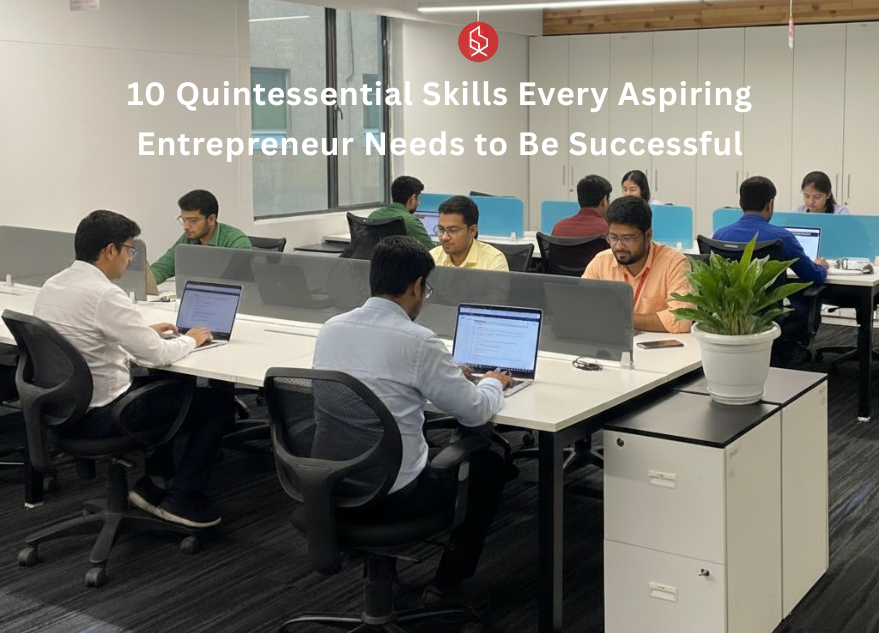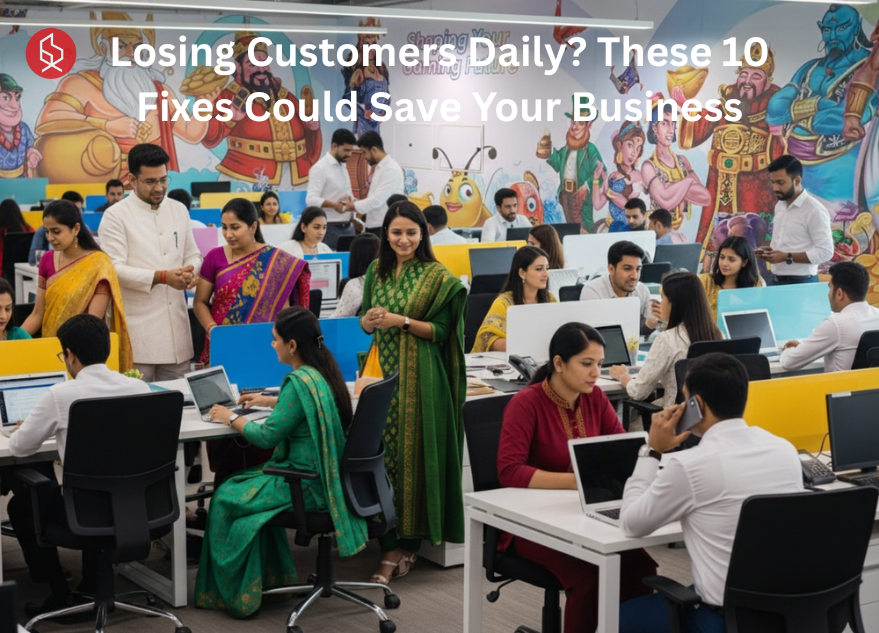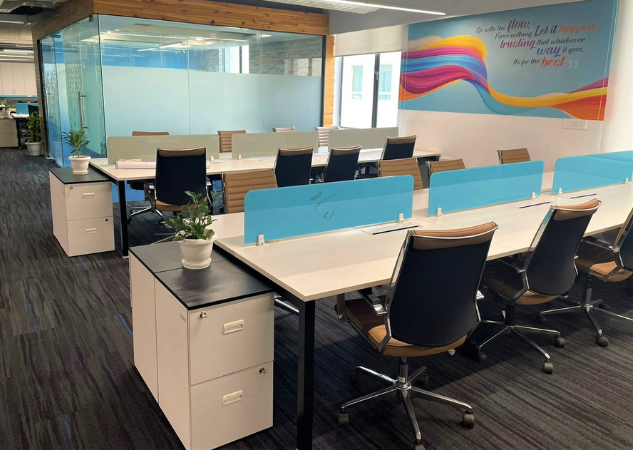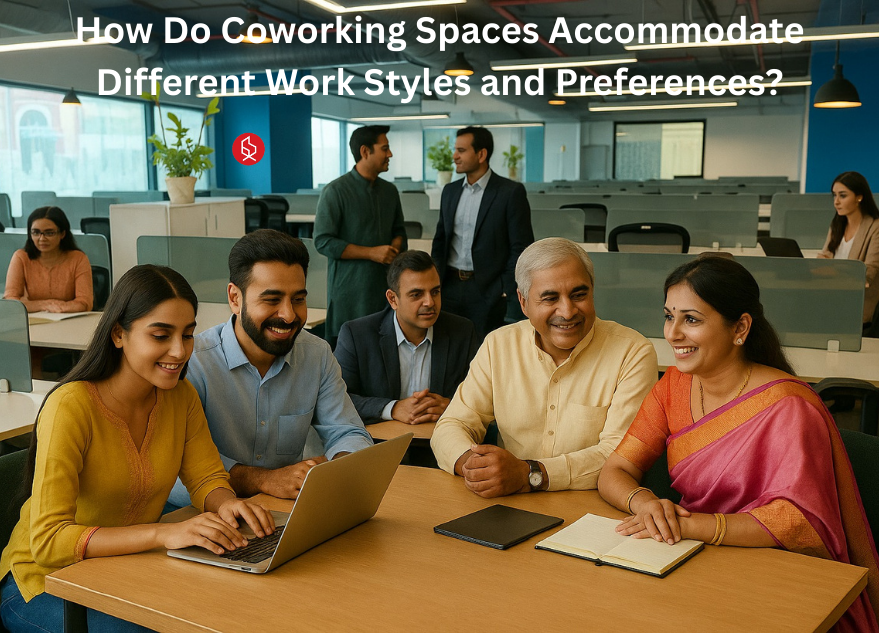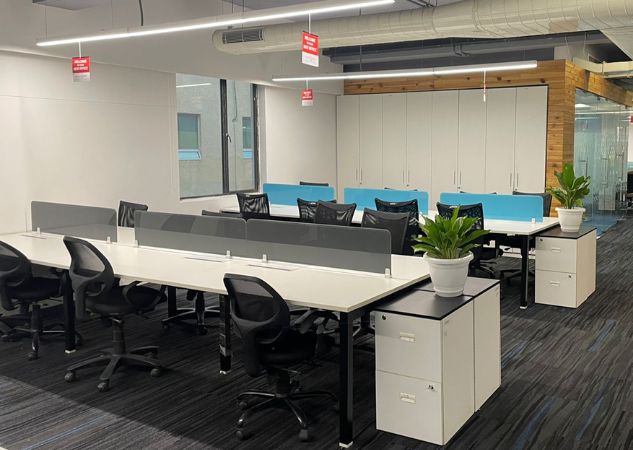Starting a business requires more than just a good idea. To succeed, aspiring entrepreneurs must develop a set of essential skills that help them overcome challenges and grow sustainably.
💡 Are you looking for Coworking space in Gurgaon, Noida or Delhi? We are just a call away. Call Now: 08999 828282
10 Essential Skills for Entrepreneurs Needs to Be Successful
- Strong Leadership Skills for Entrepreneurs
- Communication Skills in Entrepreneurship
- Time Management for Entrepreneurs
- Problem-Solving and Critical Thinking
- Financial Management Skills
- Networking and Relationship-Building
- Adaptability and Flexibility
- Creativity and Innovation
- Strategic Thinking and Planning
- Emotional Intelligence
1. Strong Leadership Skills for Entrepreneurs
Leadership is one of the most critical skills for entrepreneurs. As a business owner, you will guide your team, set goals, and make decisions that shape the company’s future. Good leadership inspires trust, motivates employees, and ensures everyone is working toward the same vision.
Entrepreneurs should practice decision-making, delegation, and conflict resolution to strengthen leadership. Developing these qualities of a successful entrepreneur helps build a positive culture where growth is possible. Effective leadership is not about controlling people—it is about guiding them with clarity, confidence, and empathy.

2. Communication Skills in Entrepreneurship
Clear communication is vital for building strong business relationships. Entrepreneurs must explain their vision to investors, negotiate with partners, and give clear instructions to employees. Strong communication skills in entrepreneurship are also essential for pitching ideas, networking, and resolving conflicts. Listening actively is equally important, as it helps you understand customer needs and market trends.
Whether it’s writing emails, presenting to stakeholders, or motivating your team, effective communication can make or break a business. By improving both verbal and non-verbal communication, entrepreneurs can present themselves as confident and credible leaders.
3. Time Management for Entrepreneurs
Managing time effectively is a must-have skill for entrepreneurs. With so many responsibilities—strategy, operations, finances, and people—time can quickly slip away. Entrepreneurs who master time management prioritize tasks, delegate wisely, and avoid unnecessary distractions. Using tools like calendars, productivity apps, or time-blocking techniques can make daily work more efficient.
Effective time management for entrepreneurs reduces stress and enables a focus on activities that create the most value for the business. By learning to balance short-term tasks with long-term goals, entrepreneurs can achieve sustainable success without burning out.
Also Read: Business Terms Every Entrepreneur Should Know By Heart
4. Problem-Solving and Critical Thinking
Every business faces unexpected challenges, from financial hurdles to competition. Entrepreneurs must develop strong problem-solving and critical thinking abilities to find practical solutions. This skill enables the analysis of risks, identification of opportunities, and informed decision-making under pressure.
Instead of panicking during setbacks, successful entrepreneurs evaluate options and act decisively. Critical thinking also allows them to question assumptions and stay open to new ideas. Developing this quality of a successful entrepreneur ensures you can handle challenges with confidence and creativity, keeping your business on the right track.
5. Financial Management Skills
Money is the lifeline of any business, and entrepreneurs must understand how to manage it wisely. Financial management skills for entrepreneurs include budgeting, forecasting, and understanding cash flow. Without these skills, even profitable businesses can fail due to poor planning.
Entrepreneurs don’t need to be accountants, but they must know how to read financial reports, manage expenses, and plan for growth. These essential skills for entrepreneurs ensure stability, help in attracting investors, and protect against unnecessary risks. Strong financial knowledge also supports smart decision-making in both short and long-term business strategies.
6. Networking and Relationship-Building
Building meaningful relationships is a key business skill for entrepreneurs. Networking helps you connect with mentors, investors, clients, and other professionals who can support your growth. Strong networks provide opportunities for knowledge sharing and collaboration.
Entrepreneurs who actively build relationships also gain credibility and visibility in their industry. Networking doesn’t mean collecting business cards—it means forming genuine connections and providing value to others. By mastering this skill, entrepreneurs open doors to partnerships and resources that can significantly boost their chances of success in the long run.
7. Adaptability and Flexibility
The business world changes rapidly, and entrepreneurs must be adaptable to survive. Whether it’s market trends, customer preferences, or technological advancements, flexibility allows businesses to adjust without losing momentum. Adaptable entrepreneurs embrace change as an opportunity for growth, rather than a threat.
This essential skill for entrepreneurs helps them pivot when needed, test new strategies, and learn from feedback. By being open-minded and resilient, entrepreneurs can face uncertainty with confidence and position their businesses for long-term success in an evolving market.
8. Creativity and Innovation
Entrepreneurship thrives on fresh ideas and unique solutions. Creativity helps entrepreneurs develop products and services that stand out, while innovation ensures they meet customer needs in new ways. This is one of the must-have skills for entrepreneurs, as it drives competitive advantage and business growth.
Creativity doesn’t only mean inventing something new—it can also be about improving existing processes or finding more innovative ways to serve customers. By nurturing creative thinking and encouraging innovation in their team, entrepreneurs can build a business that stays relevant and competitive.
💡 Are you looking for Coworking space in Gurgaon, Noida or Delhi? We are just a call away. Call Now: 08999 828282
9. Strategic Thinking and Planning
A successful entrepreneur always thinks ahead. Strategic planning is the ability to set clear goals, map out the path to reach them, and prepare for challenges along the way. This important skill for entrepreneurs ensures that day-to-day actions align with long-term vision. Strategic thinkers analyze data, study competitors, and adjust plans based on real market conditions.
They also focus on sustainability and scalability, not just short-term gains. By practicing this skill, entrepreneurs can create a roadmap that leads their businesses toward consistent and meaningful success.
10. Emotional Intelligence
Emotional intelligence is one of the most underrated but powerful skills required to become an entrepreneur. It involves understanding your emotions and managing them effectively, as well as recognizing how others feel. High emotional intelligence helps entrepreneurs build stronger relationships, handle stress, and manage conflicts with empathy.
It also supports better teamwork and leadership. Entrepreneurs who develop emotional intelligence can stay calm during challenges and inspire others with their positive attitude. This quality of a successful entrepreneur ensures not only personal growth but also a healthier and more motivated work environment.
Mastering these 10 quintessential skills can set any aspiring entrepreneur on the path to success. But having the proper workspace is equally crucial for productivity and growth. The Office Pass (TOP) provides flexible, fully equipped office spaces tailored for freelancers, startups, and growing businesses. With a professional environment, networking opportunities, and all essential amenities, TOP ensures you can focus on what truly matters—building and scaling your business. Take the next step in your entrepreneurial journey and contact them today at 8999 828282 to find your ideal workspace.
Frequently Asked Questions (FAQs)
Question: What are the most important skills for entrepreneurs?
Answer: The most important skills for entrepreneurs include leadership, communication, time management, financial management, and problem-solving. These skills ensure that entrepreneurs can handle challenges, manage resources effectively, and guide their businesses toward success.
Question: Why are leadership skills important for entrepreneurs?
Answer: Leadership skills for entrepreneurs are vital because they inspire teams, create direction, and help in achieving business goals. Good leaders build trust, manage conflicts, and make strong decisions that guide the company to growth.
Question: How can entrepreneurs improve communication skills?
Answer: Entrepreneurs can improve communication skills by practicing active listening, refining presentation techniques, and learning to express ideas clearly. Engaging in networking events, public speaking, or mentorship programs also helps polish communication skills in entrepreneurship.
Question: What role does time management play in entrepreneurship?
Answer: Time management for entrepreneurs is crucial because it helps balance multiple responsibilities without burnout. By prioritizing tasks, delegating effectively, and avoiding distractions, entrepreneurs can focus on high-impact activities that grow the business.
Question: Are financial skills required to become an entrepreneur?
Answer: Yes, financial skills are essential skills for entrepreneurs. Understanding cash flow, budgeting, and forecasting helps ensure long-term stability. These skills also attract investors and protect against financial risks.
Question: How does emotional intelligence help entrepreneurs?
Answer: Emotional intelligence helps entrepreneurs manage stress, understand team dynamics, and build strong relationships. By being empathetic and self-aware, entrepreneurs can lead more effectively and maintain a positive workplace culture.
Question: Why is adaptability important in business?
Answer: Adaptability is a must-have skill for entrepreneurs because markets and technologies constantly change. Entrepreneurs who adapt quickly can seize new opportunities, adjust strategies, and stay competitive in fast-moving industries.
Question: What business skills for entrepreneurs are often overlooked?
Answer: Many entrepreneurs overlook skills like networking, negotiation, and strategic planning. These business skills for entrepreneurs are just as important as creativity or leadership because they help expand opportunities and ensure sustainable growth.
Question: Can creativity be developed, or is it natural?
Answer: Creativity is not limited to natural talent—it can be developed through practice and exposure. Entrepreneurs can boost creativity by brainstorming regularly, learning from different industries, and encouraging innovative thinking within their teams.
Question: What qualities of a successful entrepreneur stand out the most?
Answer: The standout qualities of a successful entrepreneur include resilience, adaptability, vision, and emotional intelligence. Combined with the right skills, these qualities help entrepreneurs navigate challenges and build sustainable businesses.


